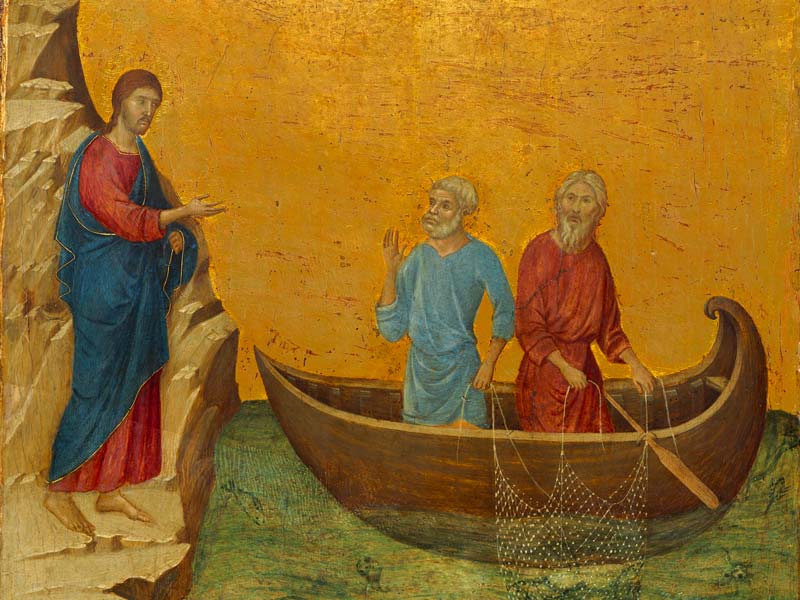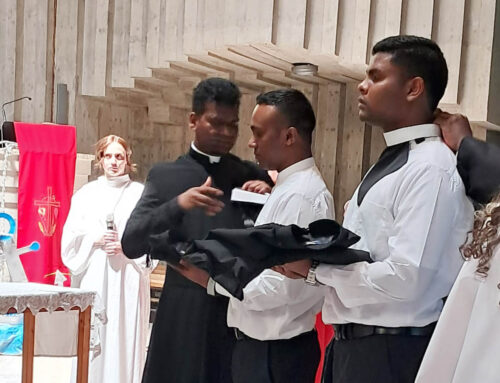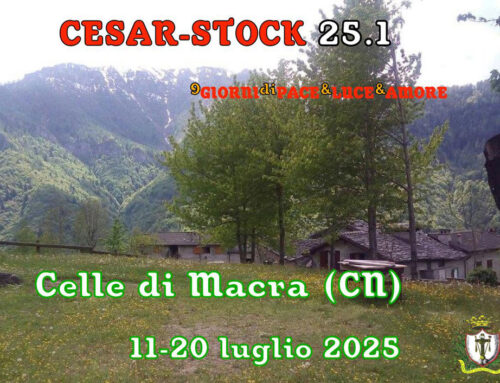by padre Enzo De Martino, dc
The training of priests and religious has always been, and today even more pressing, the main topic and concern of the Church. It could not fail to be the case for the Congregation of the Christian Doctrine Fathers. To the point that it was the main topic and voted unanimously during the last General Chapter in April 2018. Since then, the Ratio Formationis Generale has been revised, i.e. the normative document that regulates the life and training of religious from the beginning of the path to ongoing training.
In the context of general formation, the Congregation has launched, ad experimentum, a new initiative reserved above all for doctrinal religious who have reached the end of the initial formation course. After Perpetual Profession and diaconal ordination, the religious undergo an in-depth theoretical and practical internship in the priestly ministry and doctrinal religious life in Cavaillon, France. The Provençal municipality was chosen to make known the places where the founder Father Cesare de Bus was born, converted and lived his ministry as a priest and catechist. The first two brothers arrived in Cavaillon from Burundi in September 2019 and left after being ordained priests in Cavaillon in July 2020. The first doctrinaires to be ordained in France since the French Revolution. Other confreres, two deacons and a brother, for reasons linked to the regularization of their residence permit in France, spent the year of formation in Rome, in the general house. The two deacons were then ordained priests in the church of Santa Maria in Monticelli in May 2022, the year of Father Cesare’s canonization. At the end of the internship year, the brother asked and was granted permission to continue his studies to become a priest. Since October 2022, three other Burundian deacons have spent the last year of formation in France, in the new community formed since September in the parish of Robion, 7 km from Cavaillon. The undersigned, parish priest of Robion and Des Taillades, superior and trainer, was responsible for the training.
How does the training year take place and what topics are covered? Community life is structured in such a way as to have individual study times followed by moments of sharing. In the morning time is reserved for personal prayer, the office of praise and the celebration of mass in the parish. A study time follows. In the afternoon we share the work done in the morning. Priestly and religious spirituality is then explored in depth, not from the theological point of view – which has already been treated in the years of initial formation – but from a pastoral point of view, having as a guide the speeches, catecheses or writings of the latest popes, from Saint John Paul II, to Benedict XVI and, above all, to Pope Francis. The training focuses on knowledge of the liturgy through the Norms of the Roman Missal, all experienced during the celebration of mass, with some participation in the celebration of baptisms, weddings and funerals.
Another topic of in-depth study is catechesis, referring to the latest update of the General Directory of Catechesis. And with participation in catechism meetings with children and young people.
The history of the Congregation is also studied, in particular that of the last two hundred years, having as its guide the volume “With the Bible and the catechism”, published by the superior of the Congregation, Father Sergio La Pegna, in 2017 and “The history of the Doctrinaries” by De Viguerie, which recalls the years from the establishment of the Doctrinaries up to the French Revolution. Always with a careful eye on doctrinaries catechesis.
In addition to theoretical studies, the training includes weekly individual spiritual retreat days; monthly two-day retreats and stays in monasteries; retreat or training days with local diocesan clergy; monthly pastoral in-depth and training meetings with parish priests. And finally a specific retreat in anticipation of priestly ordination, lasting ten days, in a Jesuit structure in Lyon.
All community life is lived as an experience of theoretical and practical sharing. Each with its own religious service which concerns the conduct of community prayer, preaching, the parish secretariat as well as the preparation of meals and cleaning of the house. The times reserved for training and exclusively personal ones for prayer, study and rest are accompanied by moments of play and recreation, long walks or sporting activities.
The choice to visit the Italian communities, to get to know other confreres and their mission in the different realities of the Bel Paese, was also very formative. Discovering how other confreres live the charism and knowing the lay doctrinal realities remains one of the elements of training that helps to better “visualize” what has been learned in theory; it is essential for training that helps you understand and live, deepen and practice; encourages and motivates, empowers and makes you feel free. The example of many lay fathers, brothers and sisters ignites enthusiasm and helps us acquire precious experiences.
The year spent in Cavaillon allows the many young people who enter our seminaries outside Europe to get to know firsthand the source, Cavaillon, and the root, Italy, of the Congregation.





